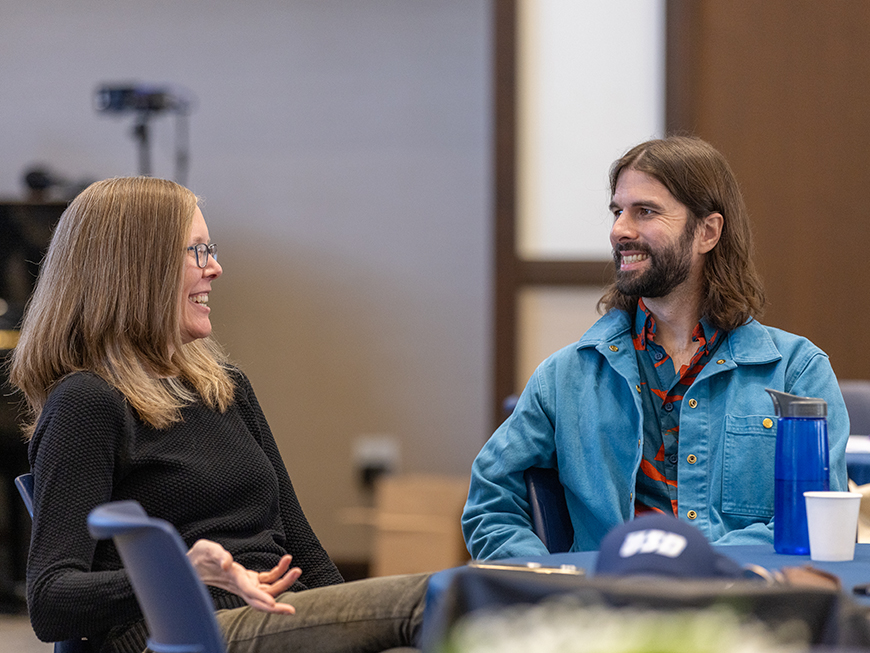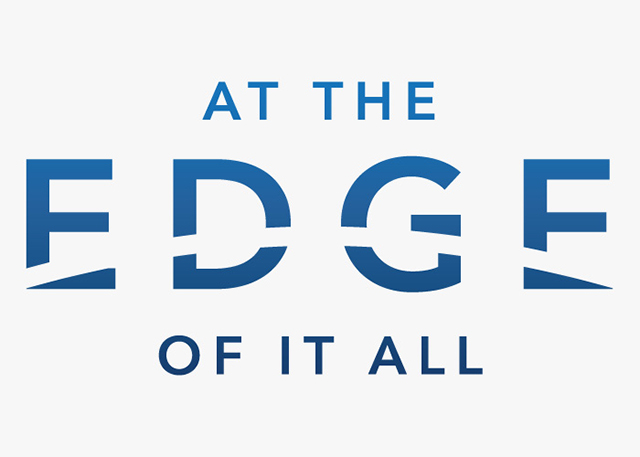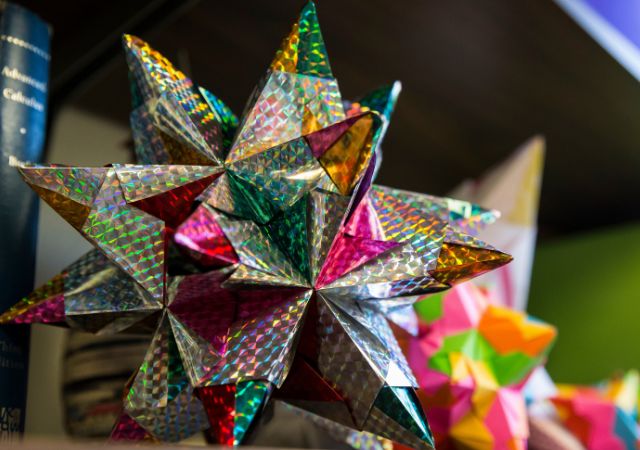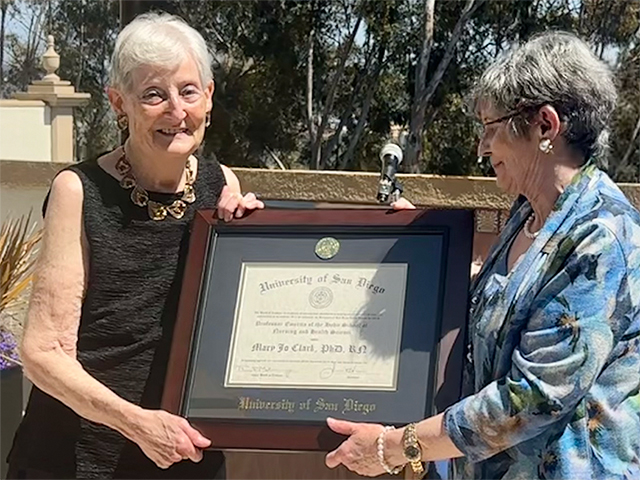CAS Hosts Third Annual Cluster-Theme Symposium
USD Faculty Assemble in an Effort to Advance Academic Excellence

Dozens of University of San Diego (USD) faculty members convened to hear thought-provoking panel discussions at the College of Arts and Sciences (CAS) third Cluster-Theme Symposium in the USD Ministry Center on February 15.
“The symposium is a key event for CAS faculty because it connects our entire community in ways that are not possible on a day-to-day basis,” said Theatre Assistant Professor Jersten Seraile, MFA. “We can learn more about our colleagues' interests and work and it’s especially useful for new faculty to learn how collaboration can work with other departments. I'm incredibly grateful for the symposium as this opens several windows of opportunities to learn about the amazing work faculty have been working on.”
Jersten, along with colleague Tim McCarty, PhD, associate professor of political science and international relations, gave a lecture called “Interdisciplinarity in Practice: The Tragedy of Democracy and the Politics of Compromise.” The talk was based on a pop-up, co-teaching course the two academics held last fall around the Greek tragedy, Philoctetes.
“Our course examined the major themes of this play and its historical context that raised questions such as how do we make peace with a political community that has caused us great harm? In addition, it included a full rehearsal process with actors to stage selected scenes from the play. Our work in this seminar would eventually culminate in the Chambers Lecture that featured performances from the play Philoctetes.”
Launched in 2022, the Cluster-Theme Symposium is a day-long event intended to build community and provide mentorship to new CAS faculty members. The new CAS faculty were brought on as part of the university’s cluster-hiring strategy, which is a part of the USD Horizon Project.
The initiative, which was launched in 2021, is a university commitment to honoring USD’s responsibility as an academic institution within a larger community. Project goals include being recognized as a Hispanic Serving Institution (HSI), being one of the 100 most diverse, independent universities in the nation and leading national Catholic peer universities in percentage of students of color enrolled, percentage of Black students enrolled and retention and graduation rates of students of color.
Cluster themes include Climate Change and Environmental Justice, Technology and the Human Experience and Borders and Social Justice.
“With these themes, the College of Arts and Sciences recognizes and supports the examination of the difficult social, environmental and political issues facing our nation and the world,” said CAS Dean Noelle Norton, PhD. “These challenges may seem unwieldy and overwhelming, but we and our stakeholders believe we can work toward solutions by organizing the themes with a global focus at a local level.”
About the Cluster Themes:
Climate Change and Environmental Justice: Given the array of disciplinary perspectives from which climate change and environmental justice may be approached, faculty in this theme shared interest and/or expertise to engage attendees with questions about the impact of the changing climate on humanity, the environment, public policy and the arts.
Technology and the Human Experience: Speakers shared aspects of the college’s promising program of research in the study of technology and the human experience that prepares students to design, create, regulate and implement accessible and bias-free technologies for a diverse world.
Borders and Social Justice: In the spirit of recognizing borders as social, political, cultural and physical constructs that act as artificial or natural boundaries within and beyond our imagination, the College of Arts and Sciences faculty shared expertise in challenging and contesting the concept of borders.
— USD News Center




